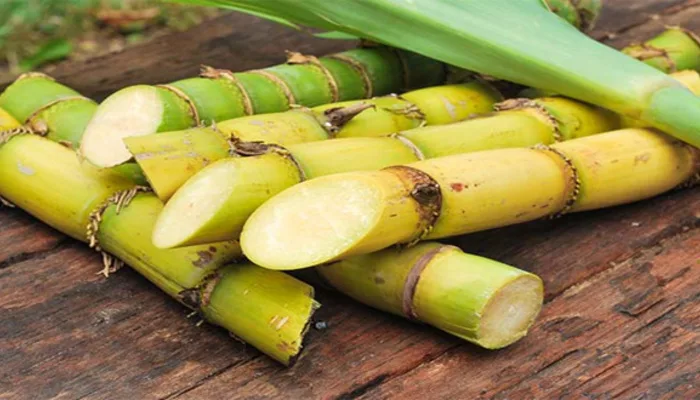Pakistan’s sugar sector is facing widespread mismanagement, leaving sugarcane growers—the real stakeholders—in a state of frustration and exploitation. The millers and middlemen, backed by influential politicians, have been accused of taking advantage of farmers, despite the country’s sugar surplus.
Several prominent politicians own sugar mills, while others maintain close ties with millers. This connection creates a situation where the political elite and millers benefit from sugar shortages, despite surplus production in the country. The situation is worsened by the fact that growers have been deprived of the guaranteed support price for sugarcane, a result of the government’s agreement with the International Monetary Fund (IMF) to deregulate the sugar market.
Declining Prices and Delayed Payments
Growers in Punjab were initially offered a price of Rs350 per 40 kg, but by the end of the season, the price fluctuated between Rs400 and Rs450. Although sugarcane prices in Sindh are relatively high, the province struggles with low yields and relies on Punjab for its sugarcane supply. Despite an increase in prices to Rs460 per 40 kg, many growers are still under pressure due to a culture of delayed payments from mills.
This practice, which has persisted for decades, has allowed middlemen to enhance their control over the market. Farmers with the capacity to wait for payment often face unjustified reductions in prices after months of delays. For others unable to wait, selling to middlemen is their only option, but at a significantly lower price than the market value.
Farmers’ Struggles with Rising Costs
Sugarcane growers are burdened by soaring input costs, including a 50% rise in fertilizer prices since 2022. Diesel costs remain volatile, and labor shortages have worsened harvests. Despite these challenges, middlemen continue to offer immediate cash for farmers’ produce, bridging the gap between fields and mills.
Middlemen, also known as “arthis,” argue that their role is crucial for transporting cane to mills. They claim to invest in trucks, pay bribes at checkpoints, and take on risks to ensure farmers can sell their crops. However, farmers see this as another form of exploitation, with middlemen profiting off their hardships.
IMF to Assess Governance and Corruption in Pakistan
Sugar Prices and Market Manipulation
The sugar industry is also influenced by wholesalers and middlemen of processed sugar, who are accused of manipulating prices by creating artificial shortages or surpluses. In stores, the retail price of sugar fluctuates between Rs140 to Rs150 per kg, depending on the location. Government officials and market pundits have pointed out the role of wholesale dealers in these price changes.
However, a former chairman of the Pakistan Sugar Mills Association (PSMA) denied that millers were responsible for creating artificial shortages. He argued that prices in an open market economy are based on supply and demand, but he also acknowledged the possibility of illegal storage practices.
Calls for Reform
Market analysts and government officials often discuss potential reforms for the sugar sector, including proposals for direct contracts between farmers and millers to bypass middlemen. Others suggest implementing subsidies for high-yielding seeds or imposing sugar taxation to fund farmer welfare schemes. However, these ideas have rarely been implemented, leaving the sugar sector’s exploitation of growers largely unaddressed.
In conclusion, Pakistan’s sugar sector continues to exploit its most important players—sugarcane growers—amid rising costs and manipulative practices by millers, middlemen, and wholesalers. While the sector’s issues are well-known, meaningful reforms remain elusive, leaving farmers struggling in a cycle of debt and dependency.
Follow us on Google News, Instagram, YouTube, Facebook,Whats App, and TikTok for latest updates
